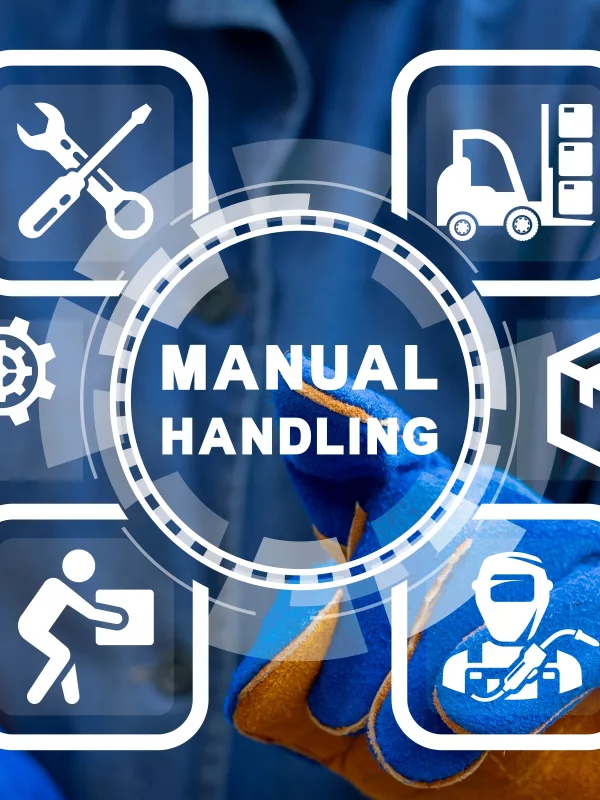Manual Handling
What is manual handling?
Manual handling qualifications help ensure the health and safety of workers in all sorts of industries. Manual handling refers to lifting, carrying or moving heavy loads that may be completed during your employment. It can also mean the operation of machinery and even cleaning tasks.
According to the Australian Bureau of Statistics, in the 2021/2022 financial year, 497,300 people suffered a work-related injury. More than 24% of those were due to 'lifting, pushing, pulling or bending', making it the most common cause of injury.
In Australia, several jobs may require you to undertake manual handling qualifications to ensure the safety and well-being of workers when handling heavy loads or performing physically demanding tasks.
While the specific requirements can vary depending on the employer and industry, some typical jobs that may require manual handling qualifications include:
- Construction
- Warehouse and Logistics
- Healthcare Professionals
- Agriculture and Farming
- Retail
- Transport and Delivery Drivers
- Volunteers
- Cleaning
- Security
Why is manual handling training essential?
Manual handling skills enhance workplace safety as employees learn to recognise potential hazards and are empowered to adopt safe practices, leading to fewer accidents and disruptions. So, if you are required to take a course in manual handling, it shows that your employer is looking out for your safety.
As an employer, compliance with workplace health and safety laws demonstrates your commitment to maintaining a safe work environment. All workplaces should consider potential risks to employees. It's not only factories and physical jobs, but within offices, incorrect lifting techniques can result in injuries to staff.
Supplying a manual handling course can significantly reduce employees' risk of musculoskeletal injuries caused by incorrect handling practices.
Essential Requirements to undertake these courses
Due to the physical nature of the course, it will be important you have no limitations on your ability to lift and hold heavy loads, including the ability to use a mechanical lifter and reposition a person using a slide sheet.
The below courses are offered on the ATEC campus. We can modify the course to address specific industry requirements. Talk to us if you'd like to arrange a particular course for your employees on location.
Hazardous Manual Tasks
This short course is delivered in person, through which you will learn to safely identify, prepare for, and conduct manual handling tasks. This course will teach you skills specific to working in health care, such as assisting immobile patients and concludes with a practical assessment.
Employee Outcomes
It's important to note that the specific requirements for manual handling training can vary based on state or territory regulations and the policies of individual employers. If you are interested in a particular job, you should check with potential employers to determine the specific qualifications needed.
Reducing risk to yourself and other employees when conducting manual handling tasks is an essential obligation of your workplace. This training will empower you and equip you with transferable skills that promote a safer and more productive working environment while safeguarding well-being at work and in everyday life.



